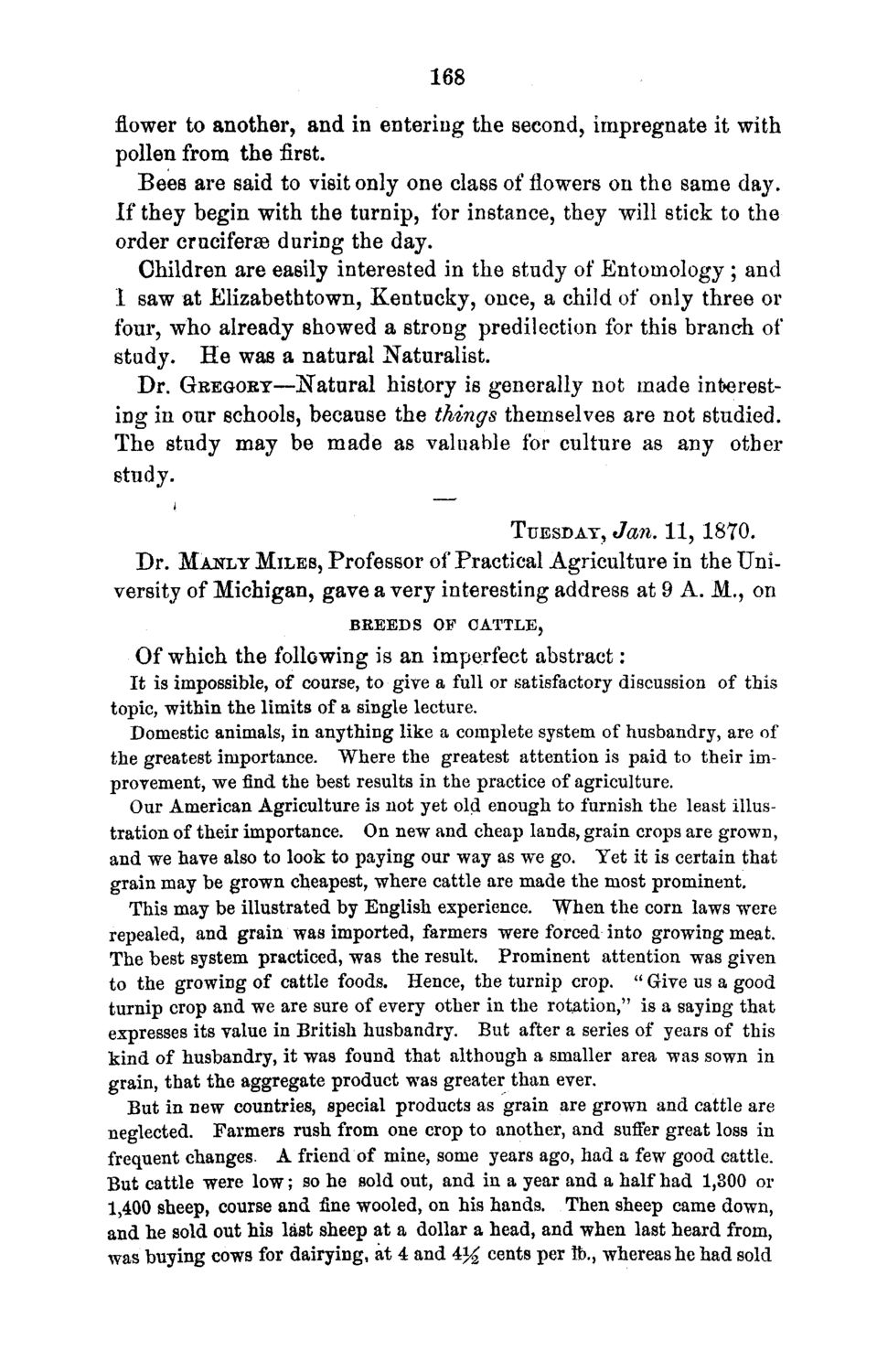| |
| |
Caption: Board of Trustees Minutes - 1870
This is a reduced-resolution page image for fast online browsing.

EXTRACTED TEXT FROM PAGE:
168 flower to another, and in entering the second, impregnate it with pollen from the first. Bees are said to visit only one class of flowers on the same day. If they begin with the turnip, for instance, they will stick to the order cruciferse during the day. Children are easily interested in the study of Entomology ; and I saw at Elizabethtown, Kentucky, once, a child of only three or four, who already showed a strong predilection for this branch of study. H e was a natural Naturalist. Dr. GREGORY—Natural history is generally not made interesting in our schools, because the things themselves are not studied. The study may be made as valuable for culture as any other study. TUESDAY, Jan. 11,1870. Dr. MANLY MILES, Professor of Practical Agriculture in the University of Michigan, gave a very interesting address at 9 A. M., on BREEDS OF CATTLE, Of which the following is an imperfect abstract: It is impossible, of course, to give a full or satisfactory discussion of this topic, within the limits of a single lecture. Domestic animals, in anything like a complete system of husbandry, are of the greatest importance. Where the greatest attention is paid to their improvement, we find the best results in the practice of agriculture. Our American Agriculture is not yet old enough to furnish the least illustration of their importance. On new and cheap lands, grain crops are grown, and we have also to look to paying our way as we go. Yet it is certain that grain may be grown cheapest, where cattle are made the most prominent. This may be illustrated by English experience. When the corn laws were repealed, and grain was imported, farmers were forced into growing meat. The best system practiced, was the result. Prominent attention was given to the growing of cattle foods. Hence, the turnip crop. " Give us a good turnip crop and we are sure of every other in the rotation," is a saying that expresses its value in British husbandry. But after a series of years of this kind of husbandry, it was found that although a smaller area was sown in grain, that the aggregate product was greater than ever. But in new countries, special products as grain are grown and cattle are neglected. Farmers rush from one crop to another, and suffer great loss in frequent changes. A friend of mine, some years ago, had a few good cattle. But cattle were low; so he sold out, and in a year and a half had 1,300 or 1,400 sheep, course and fine wooled, on his hands. Then sheep came down, and he sold out his last sheep at a dollar a head, and when last heard from, was buying cows for dairying, at 4 and 4J^ cents per lb., whereas he had sold
| |